Overview
The staff at Modpep are experts in the design and synthesis of novel and difficult peptide-based molecules. We supply research grade peptides from milligram to multi gram scales at purities of up to > 95%. All products are supplied as a trifluoroacetate salt unless otherwise specified; amino acid analysis is also available on request. A certificate of analysis is provided which includes full characterisation of each peptide via reversed-phase HPLC and mass spectrometry. We specialise in the following modifications/applications:
• Post-translational modifications •
• Cyclic peptides •
• FRET peptides •
• NMR spectroscopy •
• SAR studies •
• Bioconjugation •
• Protein synthesis •
• Quantitative Proteomics •
See below for a comprehensive description of our offerings. All products are proudly manufactured in Melbourne, Australia. Please contact us for more information or to request a quote.
Pricing
Required > 80% purity > 95% purity AUD $75 minimum AUD $100 minimum AUD $90 minimum AUD $125 minimum AUD $105 minimum AUD $150 minimum AUD $120 minimum AUD $175 minimum
Prices are exclusive of GST and based on the incorporation of up to 40 standard amino acids only. For pricing of modified peptides or for quantities and purities not listed, please contact us.
Post-translational Modifications
Peptides and proteins can undergo various post-translational modifications: phosphorylation, sulfation, lipidation, glycosylation and amidation are some common examples. Furthermore, specific transformations can occur that lead to the formation of unusual residues such as hydroxyproline, γ-carboxyglutamate, citrulline and D-amino acids. Modpep has the expertise to incorporate these modifications (and many more) into synthetic peptides efficiently and with minimal extra cost.
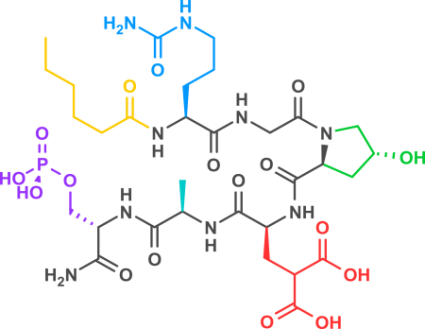
Cyclic Peptides
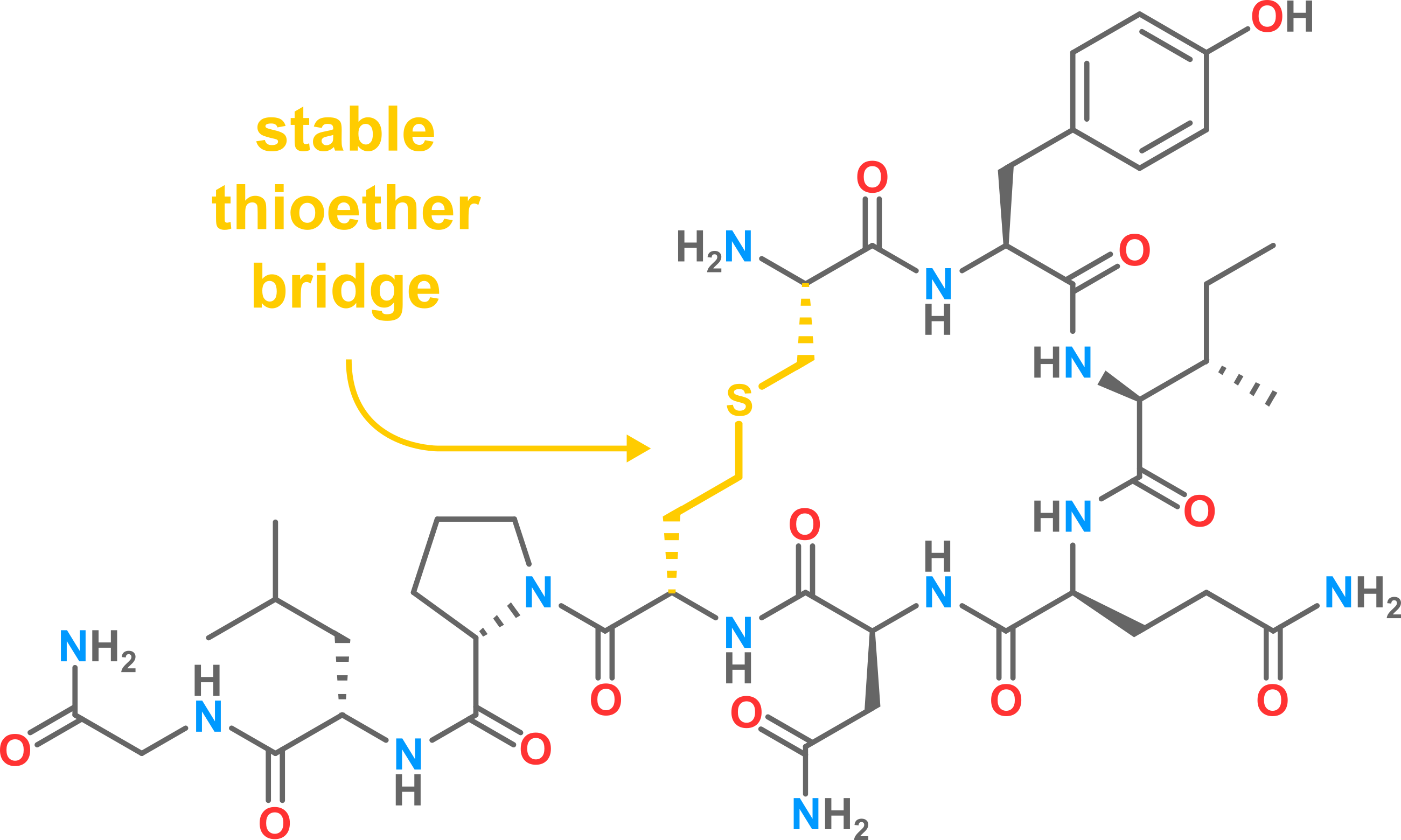
Cystine-rich peptides such as conotoxins, defensins, cyclotides and members of the insulin-relaxin superfamily are highly ordered and often pharmacologically relevant. Replacement of the disulfide bonds in these molecules with stable mimetics such as lactam, diselenide, and thioether bridges can enhance their pharmacokinetic properties. Backbone (head-to-tail) cyclisations and non-native “staples” are alternative strategies to achieve this aim. Modpep can incorporate all these macrocyclic modifications into peptides plus more.
Fluorescent Labelling and FRET Peptides
Incorporation of fluorescent dyes in synthetic peptides and proteins is a powerful tool for fluorescence microscopy and the investigation of biological events. Fluorescence Resonance Energy Transfer (FRET) peptides, can be employed to monitor biochemical reactions such as quantifying enzyme activity. Modpep can assist in the design of these constructs and assemble them with various combinations of fluorescent donor and quencher molecules.
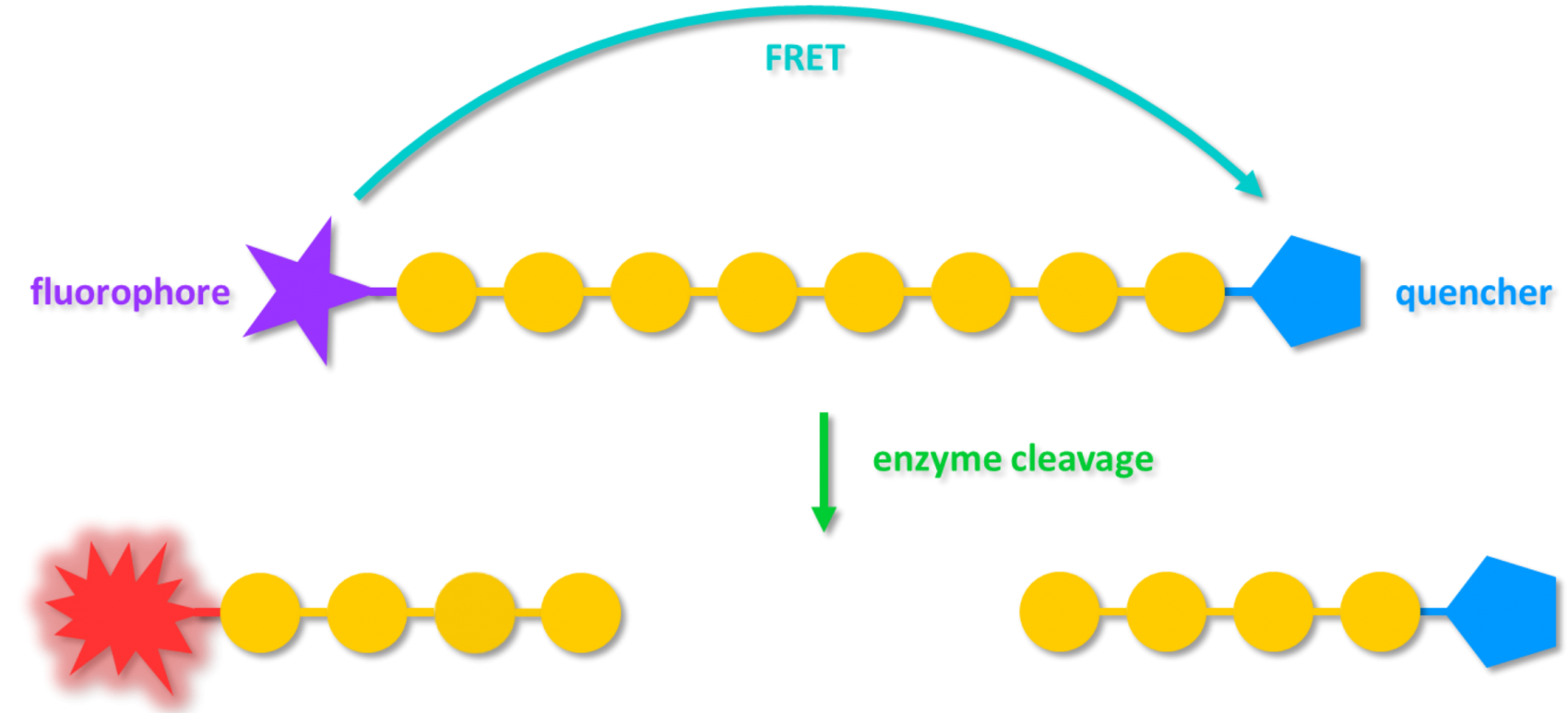
Peptides for NMR Spectroscopy
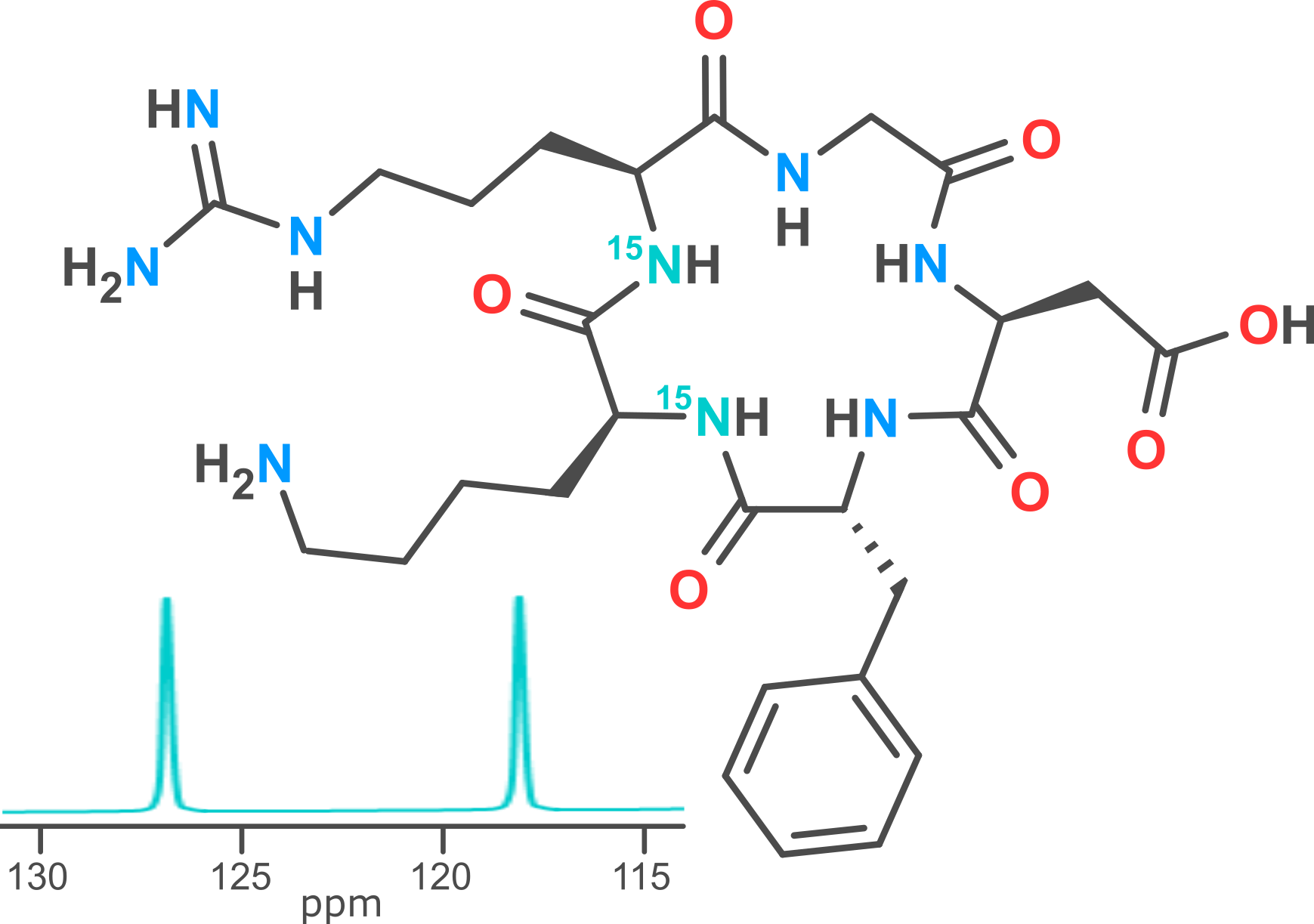
Site-specific labelling of peptides and proteins with stable NMR-active nuclei (such as deuterium, carbon-13 and nitrogen-15) is a valuable strategy for measuring atomic distances and identifying the chemical shift of a particular residue. This approach can be used to study molecular dynamics, ligand-receptor interactions and aid in the elucidation of complex tertiary structures. For applications such as these, we recommend that NMR spectroscopists use peptides and proteins isolated as the hydrochloride salt (instead of trifluoroacetate), particularly for fluorine-19 experiments. Modpep can supply tens of milligrams of isotopically labelled material at purities in excess of 95%.
Structure-activity Relationship Studies
Peptide drugs are becoming increasingly popular due to their high affinity and specificity for their biological target, plus their low toxicity. Lead optimisation can further enhance their pharmacological properties. Lipidation/PEGylation, side-chain substitution, macrocyclisation, truncation, N-methylation and alanine scanning are techniques often used to achieve this outcome. Modpep can perform a comprehensive SAR study for your lead compound in a timely manner.
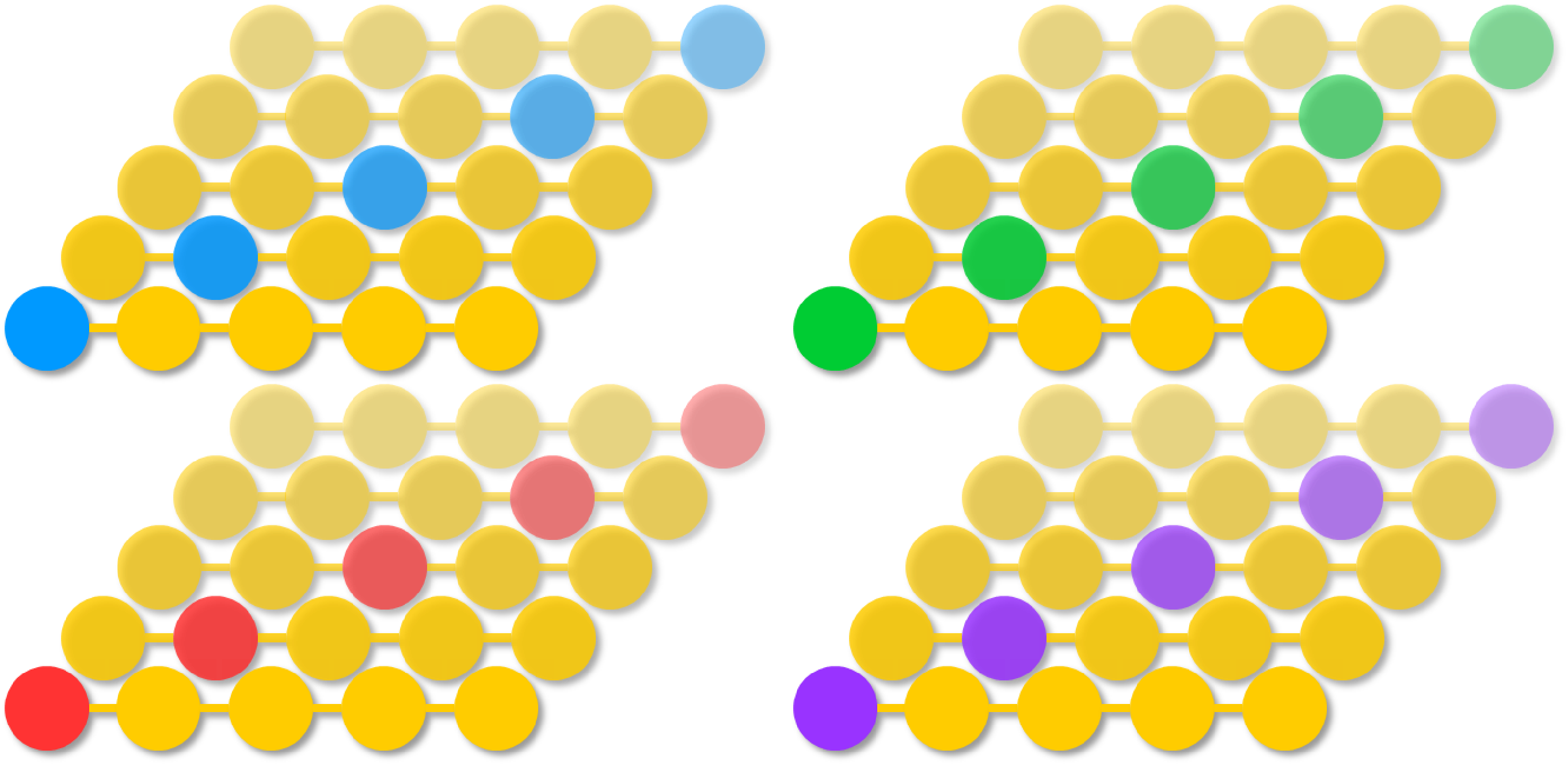
Bioconjugation
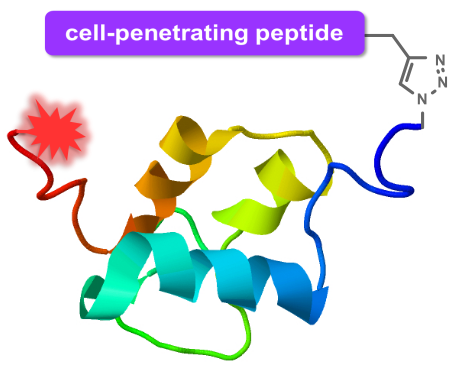
Chemoselective ligation is a powerful tool for conjugating biomolecules with various substrates. This chemistry can be applied to synthetic peptides and proteins for the following applications: attachment of delivery vectors (cell-penetrating peptides); fluorescent labelling for imaging; conjugating carrier proteins (e.g. KLH) for the production of antibodies; PEGylation for stabilising drugs; and, creating biofunctional surfaces. Modpep can employ various ligation reactions with synthetic peptides, including (but not limited to) disulfide and thioether bridges, maleimide-thiol chemistry, oxime ligations and alkyne-azide click reactions.
Protein Synthesis
Synthetic proteins with over one hundred residues long can now be assembled by employing techniques such as native chemical ligation. This critical advance allows for the efficient incorporation of post-translational modifications, non-natural residues and site-specific isotopic labelling in proteins, which is often prohibitive when using recombinant DNA techniques. Modpep has the ability to design and synthesise these large biological constructs in a cost-effective manner to a high degree of purity (PDB image ID: 1IAZ).
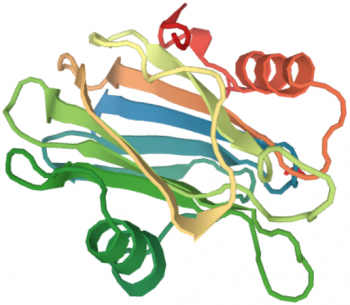
Peptides for Quantitative Proteomics
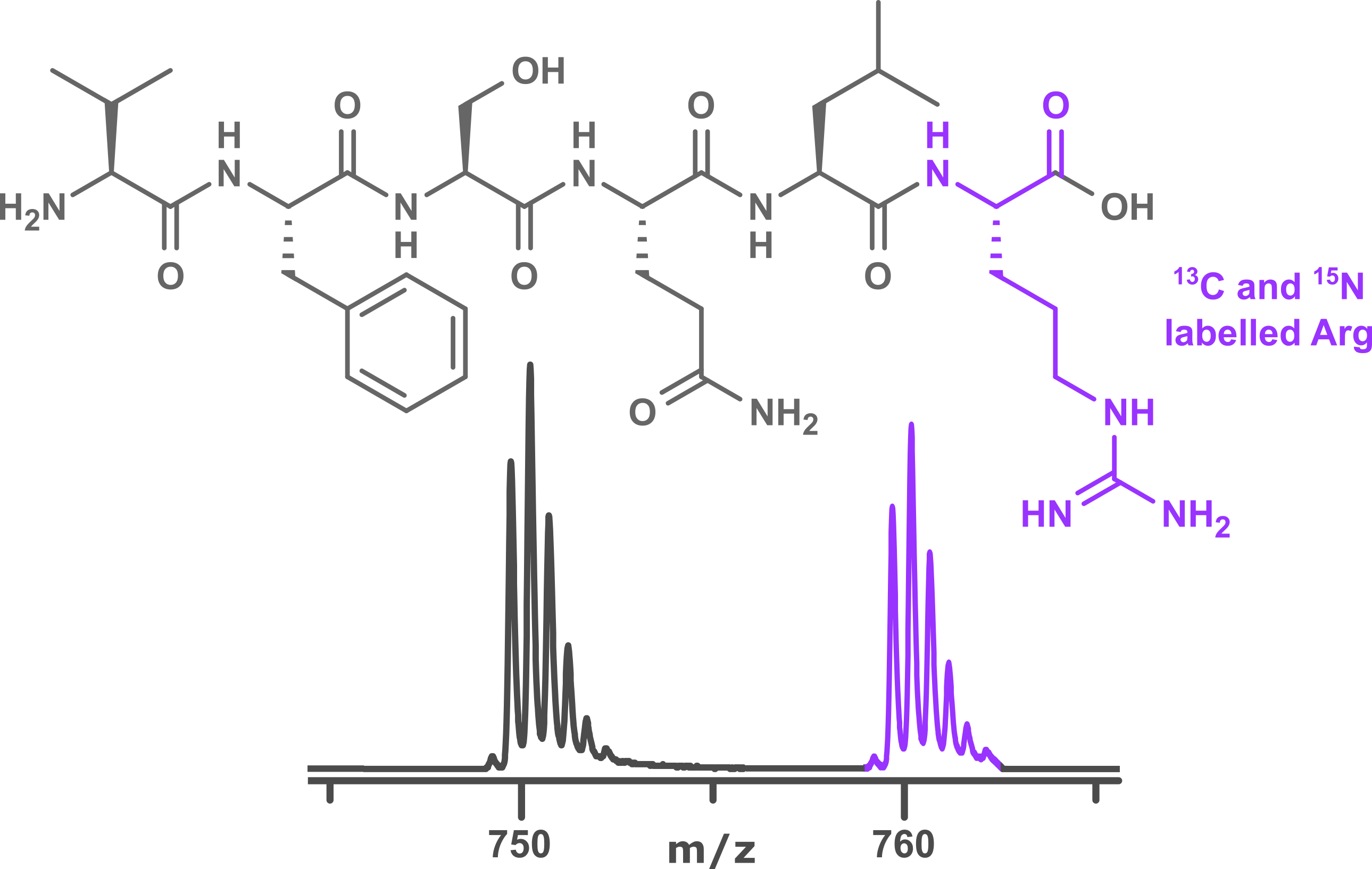
Quantitative proteomics is an essential technique for determining absolute levels of proteins of interest in biological samples. The absolute quantification (AQUA) of peptides from a trypsin digest can be determined by using isotopically labelled synthetic analogues as internal standards. These “AQUA peptides” have the same physicochemical and ionisation properties as the natural versions, but the increased molecular mass (usually 6 – 10 Da) allows ratios and hence the absolute quantity of the natural peptide to be determined. Modpep can supply highly pure AQUA peptides and amino acid analysis (AAA) can be performed on request.

